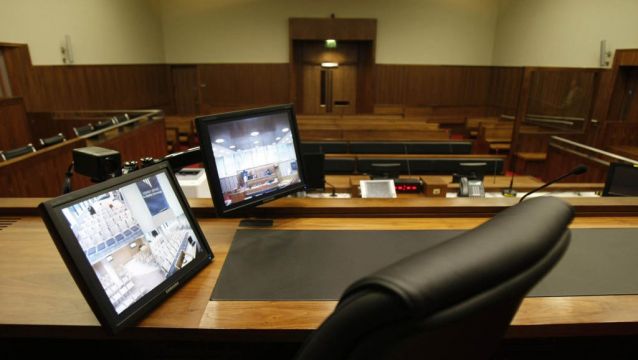The jury in a trial of two men who were convicted of raping a student should have been discharged after the judge asked a witness a direct question about the complainant’s alcohol consumption on the evening in question, the Court of Appeal was told on Thursday.
Boakye Osei (32), formerly of Tooban, Burnfoot, Co Donegal, but now a prisoner at Midlands Prison, and Kelvin Opoku (35), formerly of Glendale Manor, Letterkenny, Co Donegal, but also a prisoner at the same prison, had pleaded not guilty at the Central Criminal Court to the rape of the woman in February 2015.
The jury found them guilty, however, and both men, who are originally from Ghana, were sentenced to nine years’ imprisonment by Mr Justice Alex Owens in March 2020. They have since appealed the conviction.
In documents submitted to the Court of Appeal, it was claimed Mr Justice Owens had erred by questioning a witness as to whether the complainant and/or her female friend had appeared intoxicated “on the day of the alleged offence, where the degree of intoxication of the complainant and her capacity to consent to sexual intercourse was a central element of the prosecution case” against both appellants.
The defence argued that after a witness told the court that, in her opinion “as a mother”, both women appeared drunk, the trial judge erred in refusing requests from defence teams to discharge the jury and, as a consequence, they claim both men were denied a fair trial.
'Finely balanced' case
Michael Bowman SC, for Opoku, told the three-judge court it was not the “position of the judge” to ask such a question in a “finely balanced” case where alcohol had been a “core issue”.
“Once the question is asked, that answer is out of the box,” counsel continued.
It has also been claimed in submissions that “only a small portion of material” from the complainant’s mobile phone had been disclosed to the defence prior to the trial commencing.
Alex White SC, for Osei, told the court Mr Justice Owens had been “wrong in the view and attitude he took towards the phone material”.
Mr White also said the judge erred in allowing the complainant to remain abroad during the trial and give her evidence via a video-link.

“The jury are entitled to see the demeanour of the witness as they leave the witness box and that is something not available to them when there is a video-link,” counsel said.
In response, Seamus Clarke SC, for the Director of Public Prosecutions (DPP), said the question asked of the witness by the judge had been “quite tame”.
Mr Clarke also said it was well within the judge’s discretion to allow video evidence. In relation to the disclosure of data from the complainant’s mobile phone, he noted: “You don’t need to be a rocket scientist” to ascertain exactly what type of material the defence required “in a case like this”.
Judgment in the case has been reserved.







